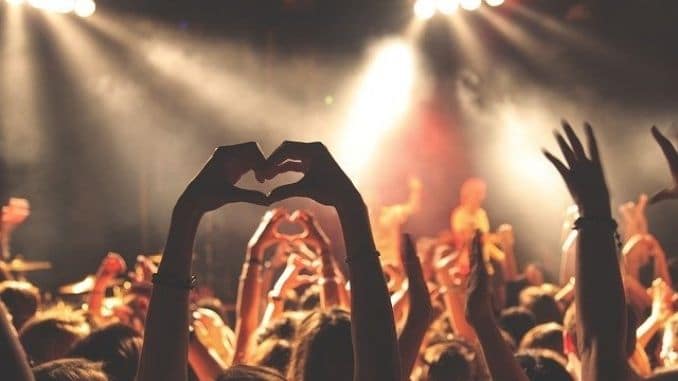
Your wife asks you to accompany her to her work party. At least 200 people will be there. You want to accommodate your wife. However, at the thought of that party, your heart beats faster, and you start to perspire.
As the date of the party approaches, you find your appetite is off. You have trouble sleeping. The party looms large and frightening in front of you. You berate yourself for your fears. It’s just a work party. But you can’t help it. It makes you feel anxious.
The National Institutes of Mental Health (NIMH) estimates 7.1 percent of United States adults suffer from social anxiety disorder each year. Even more suffer from something similar during the holiday season, even though they’re fine the rest of the year.
What is this disorder and, if you have it, how might you overcome it so you can enjoy social events this holiday season?
What Is Social Anxiety Disorder?
Formerly called “social phobia,” social anxiety disorder is a specific type of anxiety disorder that involves intense anxiety or fear of being judged, evaluated negatively by others or rejected in a social situation. A person who suffers from this disorder may have one or more of the following symptoms:
- Persistent fear of one or more social situations where embarrassment may occur
- Anxiety out of proportion to the actual threat posed by the social situation
- General anxiousness around other people
- Inability or difficulty talking to others
- Self-consciousness
- Fear of others’ judgment
- Anxiousness days or weeks before a social event
Those who suffer from social anxiety disorder may also experience physical manifestations of their anxiety, including:
- Increased heart rate
- Muscle tension
- Blushing
- Dry throat and mouth
- Trembling
- Dizziness
- Difficulty breathing
- Sweating
- Shaking
- Feeling sick
Victims may seek to limit their symptoms by avoiding social situations that trigger them. They may avoid public speaking or even shopping, for instance, or miss out on outings with friends, parties, shopping and family gatherings. They may even experience anxiety when answering the phone.
As for what causes social anxiety disorder, scientists believe that many factors are likely to be involved. First, genes can play a part as higher rates of social anxiety disorder are reported in relatives of people with the condition than in relatives of people without the condition.
Stressful events in early life can also increase risk, including being bullied, familial abuse and public embarrassment. Parents who model fear and avoidance in social situations plus an overprotective parenting style can also increase the risk that a child will develop the condition.
What Is Holiday Social Anxiety Disorder?
Whereas some people suffer from a social phobia that applies to many different social situations, others experience it most intensely during the holiday season, which is why this is seen as a unique type of social anxiety.
In a 2015 survey of more than 1,100 U.S. adults, more than half (54 percent) reported feeling some symptoms of social anxiety during the holiday season. For adults between the ages of 18 and 29, it was even more of an issue — 70 percent reported experiencing this type of anxiety concerning holiday gatherings.
The survey also discovered that people used unhealthy coping techniques to get through this anxious time. Approximately 51 percent turned to eat and 38 percent turned to alcohol. Among the younger age group, 51 percent depended on social media while 45 percent said they were likely to “hide” in their smartphones.
Ask yourself — do any of the following statements sound like you? If so, you could be struggling with holiday social anxiety.
The idea of attending work parties or family holiday gatherings stresses you out or makes you feel anxious.
You worry that you won’t make the right impression in front of others at these events.
You feel insecure or out of place at holiday parties and gatherings.
When you enter a room where a holiday gathering is taking place, you experience physical symptoms like sweating, racing heartbeat, and/or dry mouth.
You feel like you don’t know what to say to these other people and that they likely judge you negatively.
10 Ways to Relieve Holiday Social Anxiety
If you feel you may suffer from social anxiety disorder regularly, it’s important to talk to your doctor, particularly if your anxiety is keeping you from enjoying normal activities in life, like shopping, going out with friends, eating out and so on.
Treatment for social anxiety disorder typically includes cognitive-behavioral therapy (CBT), which can be highly effective when it comes to helping people enjoy social situations once again. Longitudinal studies show that those who complete therapy report a high success rate.
Whether this is something that regularly affects you in your day-to-day life or if it only seems to pop up during the holiday season, the following tips can help you cope.
1. Start Small
Psychologists know that when we fear something, the best way to get over it is to expose ourselves to what we fear gradually in small increments. Avoiding those situations completely only serves to maintain or even increase social anxiety.
Try choosing a small gathering where your anxiety is likely to be lower and attend that. Perhaps dinner with a few friends or a family outing. Then, set a small, achievable goal for that event, such as staying for one hour, dancing to one song, or meeting one interesting person. Focus on that goal while you’re at the event as it will help tame anxiety.
Take small steps forward until you feel stronger, then try a larger event.
2. Do the Opposite
If you have a social anxiety disorder, you’re likely to find ways to “hide” while you’re in a social situation. You may stay quiet, remain at the edge of a group, bury yourself in your cellphone or otherwise try to avoid the situation even while you’re in it.
Psychologists suggest that to get past your fear, you need to do the opposite of what you would ordinarily do. Instead of hanging back, push yourself forward. Find one person and talk to that person. Share some of your experiences.
Even getting yourself a drink or getting in line for food and talking to the person next to you can be a positive step forward. When you find yourself wanting to hide, do the opposite. Pretend you’re another person and use your inner actor to stretch yourself past your fear.
3. Purposely Relax
Ways to Cope with Holiday Social Anxiety: When we feel anxious, our physical symptoms can be pervasive in our thoughts. You can help reduce these symptoms with a system called “progressive muscle relaxation.” It’s best to practice this with a therapist, but you can also work on it yourself.
The idea is to tense and then relax different parts of the body to regain a sense of relaxation gradually. When you’re at home, lie down and go through each muscle group for whole-body relaxation. When you’re in a social situation, choose certain muscle groups that you can attend to while in public and still enjoy positive results.
The process goes like this:
- Breathe in and tense the muscle group for 4 to 10 seconds. This may include clenching your fists, raising your shoulders toward your ears, tightly closing your eyes, arching your back and more.
- Breathe out and suddenly and completely relax the muscle group. Do not relax gradually — relax suddenly.
- Relax for 10 to 20 seconds and move onto the next muscle group.
Muscle groups include these and more — in essence, any muscle group that you can tense up you can use to promote relaxation:
- Hands
- Shoulders
- Forehead
- Eyes
- Back
- Stomach
- Hips and buttocks
- Thighs
- Lower legs — point your toes toward your face, then away
4. Focus on Others (Not Yourself)
Ways to Cope with Holiday Social Anxiety: Much of the anxiety we feel in social situations comes from thoughts about how we come across or how others see us. Try adjusting your mindset to focus on others instead. How are they coming across? What do you think of them?
Become an active observer. Watch what others are doing. Listen actively to what they’re saying. Try to figure out how they are feeling in the moment and how you can help them to feel better or how you can join in their good feelings.
This method can be extremely effective at relieving social anxiety. When you feel the fear rising again, look around and ask yourself, “How can I help?” Is there something you can do to help the host or to make someone else feel comfortable? Can you perhaps be involved in hosting or preparing for the party? Keep your focus outward on other people.
5. Prepare Some Questions
Ways to Cope with Holiday Social Anxiety: In the spirit of focusing on others, it sometimes helps to prepare some questions in advance. Asking others questions is one of the best ways to get a conversation going. People love to talk about themselves, and you can give them a chance to do that.
Think about who will be attending the event and what questions you may want to ask them. What’s going on in their lives? What about their families, kids? What sorts of activities do they do on the job?
As you ask questions, listen carefully. You’ll pick up on what the person is interested in, and you can continue to form questions to get to know the person better. You may also find a common interest that you feel more comfortable talking about.
6. Don’t Compare Yourself With Others
Ways to Cope with Holiday Social Anxiety: You may be feeling anxious at holiday social events because you have an idea in your head about how these events “should” go. Perhaps you’ve talked to your friends about their experiences, or you’ve seen others talking about the holidays in ways that make you feel inferior.
Remember that even if the life of someone else seems perfect, it rarely is. Lower your expectations and be willing to experience the event without having any judgments of how it “should” go.
7. Decide How to Deal With Family Strife
If family gatherings stress you out, develop a strategy for dealing with them beforehand. Talk to your therapist to see if you can gather some tips on how to deal with certain difficult people.
Some ideas include:
- When someone says something offensive or brings up an old argument, try saying, “Let’s not talk about that at such a happy occasion.”
- Remember that you can always walk away if members start getting into an argument or if they try to draw you into one.
- Approach negative comments with humor. Consider keeping a private collection of rude comments. (One point for the comment, “You’ve gained weight”; two points for the comment, “Well, you never did that before”; and so on.)
- Keep short any visits you expect may turn sour. Have an exit strategy but stay open to a possible positive visit as well.
8. Go With a Friend
Ways to Cope with Holiday Social Anxiety: Having one person you trust and feel comfortable with at a social event can go a long way toward alleviating anxiety and stress. That is especially true if that person knows you well and understands your anxiety as he or she is likely to be very helpful.
9. Watch Your Diet
If you’re someone who tends to “hide” in your food while at a social event, be careful. Holiday treats that are high in sugar and fat can hurt energy and anxiety levels. In a 2017 study, researchers examined the effects of diet on mental health and found that those who consumed the sweetest foods and beverages had a 23 percent higher risk of mental disorders than those who didn’t regularly eat these foods.
The researchers wrote: “Our research confirms an adverse effect of sugar intake from sweet food/beverage on long-term psychological health and suggests that lower intake of sugar may be associated with better psychological health.”
10. Remember Other People Are Concerned About Themselves
Ways to Cope with Holiday Social Anxiety: Social anxiety comes from a focus on the self — you’re worried about what others think of your appearance or your behavior. Realize that others are not that different from you and that they may be worried about the same things, including what you think of them.
Other people are focused on their lives, their problems and their experiences much more than they are focused on you. Try to remember that in the overall scheme of things, no one is all that worried about you or what you might do.
Eating well and staying physically healthy helps us stay psychologically healthy and reduce anxiety. For your guide to the best foods to heal your body, make sure to check out The Best Foods that Rapidly Slim & Heal in 7 Days, here!







